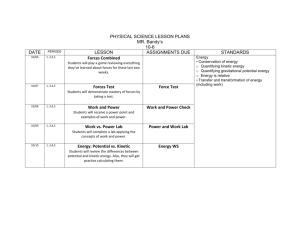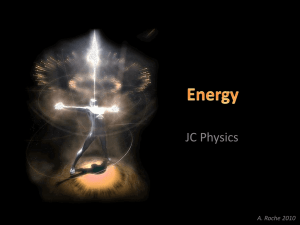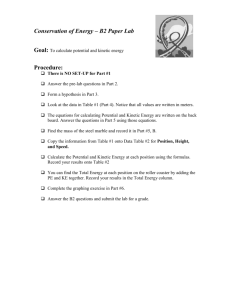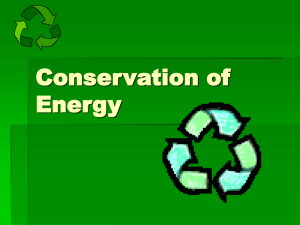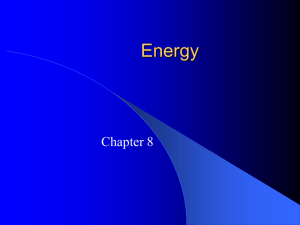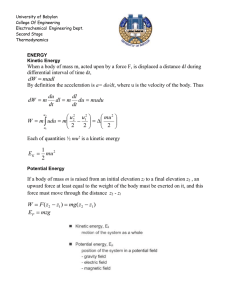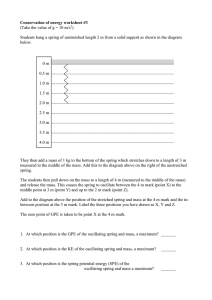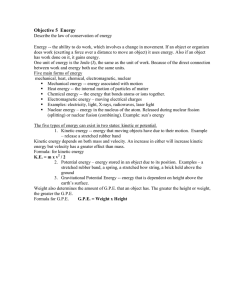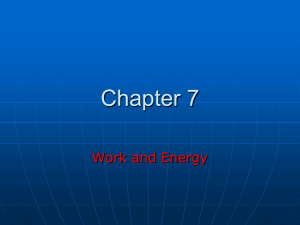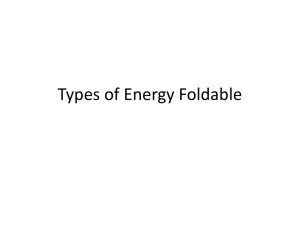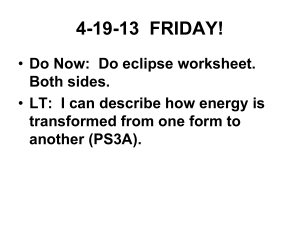Energy: Kinetic & Potential - Note-Taking Worksheet
advertisement
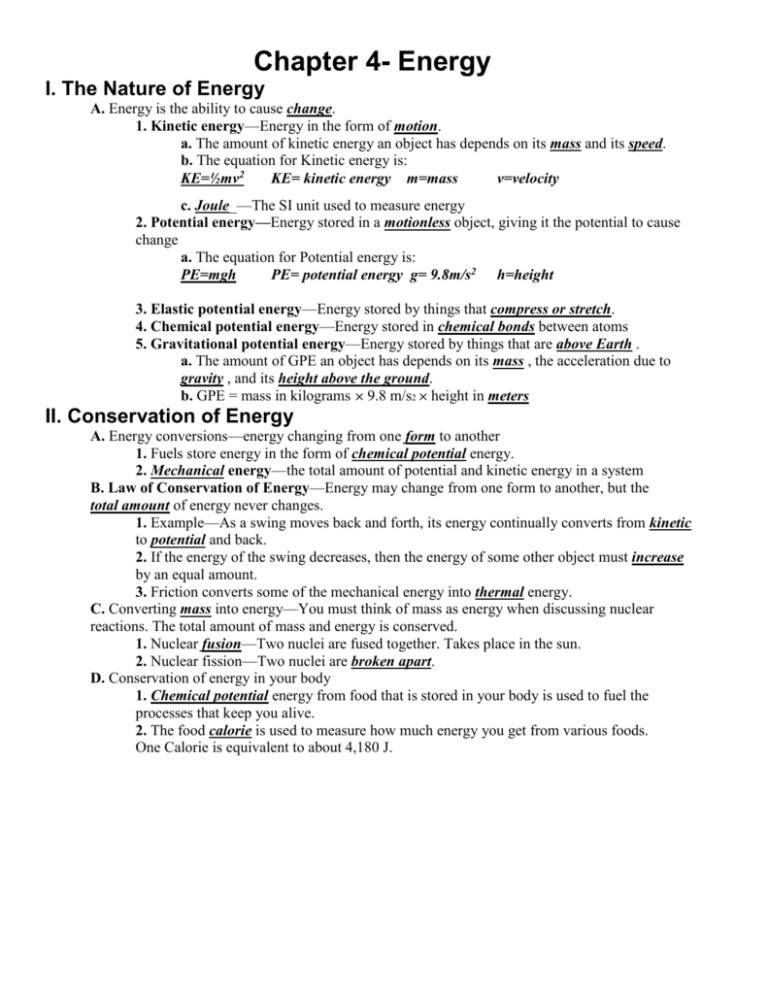
Chapter 4- Energy I. The Nature of Energy A. Energy is the ability to cause change. 1. Kinetic energy—Energy in the form of motion. a. The amount of kinetic energy an object has depends on its mass and its speed. b. The equation for Kinetic energy is: KE=½mv2 KE= kinetic energy m=mass v=velocity c. Joule_—The SI unit used to measure energy 2. Potential energy—Energy stored in a motionless object, giving it the potential to cause change a. The equation for Potential energy is: PE=mgh PE= potential energy g= 9.8m/s2 h=height 3. Elastic potential energy—Energy stored by things that compress or stretch. 4. Chemical potential energy—Energy stored in chemical bonds between atoms 5. Gravitational potential energy—Energy stored by things that are above Earth . a. The amount of GPE an object has depends on its mass , the acceleration due to gravity , and its height above the ground. b. GPE = mass in kilograms ✕ 9.8 m/s2 ✕ height in meters II. Conservation of Energy A. Energy conversions—energy changing from one form to another 1. Fuels store energy in the form of chemical potential energy. 2. Mechanical energy—the total amount of potential and kinetic energy in a system B. Law of Conservation of Energy—Energy may change from one form to another, but the total amount of energy never changes. 1. Example—As a swing moves back and forth, its energy continually converts from kinetic to potential and back. 2. If the energy of the swing decreases, then the energy of some other object must increase by an equal amount. 3. Friction converts some of the mechanical energy into thermal energy. C. Converting mass into energy—You must think of mass as energy when discussing nuclear reactions. The total amount of mass and energy is conserved. 1. Nuclear fusion—Two nuclei are fused together. Takes place in the sun. 2. Nuclear fission—Two nuclei are broken apart. D. Conservation of energy in your body 1. Chemical potential energy from food that is stored in your body is used to fuel the processes that keep you alive. 2. The food calorie is used to measure how much energy you get from various foods. One Calorie is equivalent to about 4,180 J. Meeting Individual Needs Note-taking Worksheet (continued)
